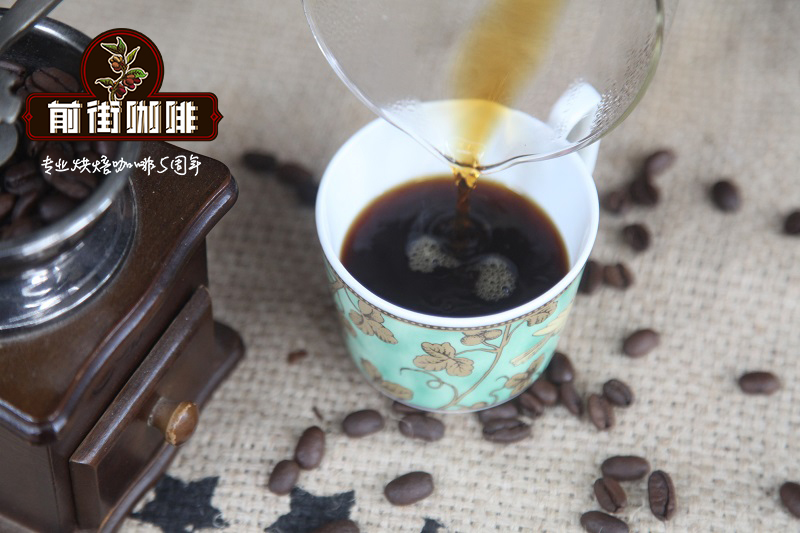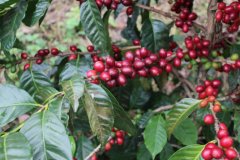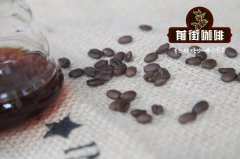The largest organic coffee producer in the world-East Timor | the history of coffee development in East Timor

Professional coffee knowledge exchange more coffee bean information please follow the coffee workshop (Wechat official account cafe_style)
East Timor, a country located in Asia, usually does not see many coffee beans here. Today, let's learn about coffee beans in East Timor. I wonder what kind of surprise the East Timorese coffee will bring us.
East Timor is an island country located at the eastern end of Timor Island in Southeast Asia. The territory of East Timor includes the Oecussi region (Oecussi), which is isolated from the east and west coast of Timor and surrounded by Indonesia, as well as the nearby Ataro Island. The west borders on West Timor, Indonesia. South across the Emperor Wenhai and Australia. The land area is 14874 square kilometers and the coastline is 735 kilometers long.
History of coffee in East Timor
Its best coffee growing area is naturally more coveted. East Timor was forcibly occupied by Indonesia in 1975, and the coffee industry was manipulated by people who only wanted to make profits, which led to the deterioration of coffee quality. it was not until 1994, with the assistance of the European Union and the United States Agency for Foreign Aid, that cooperatives were set up and production facilities were improved. and grow high-quality coffee varieties, to re-establish the reputation of high-quality coffee in East Timor!
In 1999, the World Association of Coffee producing countries (ACPC) announced that East Timor is the largest producer of organic coffee in the world. East Timor has become the main producer of organic coffee mainly because of the long-term colonial rule of Portugal for 450 years and Indonesia for 25 years. Farmers are too poor to afford pesticides, pesticides and other chemicals. Instead, it makes the island's coffee an excellent organic coffee, top-notch in terms of quality and price.
East Timor coffee beans
In general, East Timorese coffee is sun-treated with the same consistency as Mantenin, but it has a special fishy smell or bitumen smell, which is different from Mantenin's fishy smell, and some foodies like this alternative flavor. East Timor coffee and Java beans are soft beans, the first explosion and second explosion come faster when baking, it is worth noting that do not overbake it.
Ermera) is the most famous coffee producing area in East Timor, with an altitude of more than 1000 meters and a temperature of more than 6 degrees Celsius lower than that of Dili, the capital city facing the sea.
There are two main categories of East Timorese coffee beans: high-quality arabica and inferior robusta. Arabica, which grows from 1000 meters to 3000 meters above sea level, tastes round and pure, and is more expensive; robusta is more bitter and contains twice as much caffeine as arabica, so it is relatively cheap.
80% of East Timor's total coffee production is high-quality arabica, which shows that this small island is favored by the god of coffee. Drink arabica coffee East Timorese only like to drink pure black coffee, or add a little sugar, rather than milk, so as not to cover up the original taste. East Timor arabica coffee is fragrant and pure, soft, round and clean, without the bitterness and acidity of ordinary coffee.
East Timor Coffee wins with quality! Similar to Megatron's premium Colombian coffee, it is alpine arabica, picked by hand and "wet", that is, soak the coffee tree fruit for at least six hours before pulling out the beans; this is much more expensive than the "drying" commonly used in Brazilian coffee (drying the coffee tree fruit to dry off), but can retain the delicate and slippery flavor of the coffee beans.
In this Southeast Asian island nation with an area of less than 15000 square kilometers, bean farmers hand over the cultivation of coffee to heaven.
The tropical monsoon from the Indian Ocean blew and coffee seeds began to sprout.
The temperature is just right, the sun is considerate, and the average annual precipitation of 1500 mm seems to be tailor-made for coffee beans.
East Timor is mountainous and the altitude conditions have contributed to the rare alpine Arabica species.
Growth process-- No trace of pesticides and fertilizers at all
Picking process-manual picking
Granulation process-using expensive water washing
END
Important Notice :
前街咖啡 FrontStreet Coffee has moved to new addredd:
FrontStreet Coffee Address: 315,Donghua East Road,GuangZhou
Tel:020 38364473
- Prev

The characteristics and differences between individual coffee and fine coffee. Is the standard of fine coffee a single product?
Professional coffee knowledge exchange more coffee bean information Please pay attention to the coffee workshop (Wechat official account cafe_style) with the increasing popularity of coffee, there are more and more different types of coffee, what is the difference between the Blue Mountains, Mocha, Yega Snow, Colombia, individual products, boutique and so on? How will the merchants' coffee under the banner of individual and high-quality products be?
- Next

The best coffee is in Yunnan? Introduction to the varieties of coffee grown in Yunnan | how about coffee in Yunnan?
Professional coffee knowledge exchange more coffee bean information please follow the coffee workshop (Wechat official account cafe_style) the best coffee in Yunnan, China? I thought that coffee from Yunnan, China, was only grown in recent years, but in fact, coffee from Yunnan, China, was grown as early as 1892. Yunnan coffee in China has been formed due to its unique geographical environment and climatic conditions.
Related
- Detailed explanation of Jadeite planting Land in Panamanian Jadeite Manor introduction to the grading system of Jadeite competitive bidding, Red bid, Green bid and Rose Summer
- Story of Coffee planting in Brenka region of Costa Rica Stonehenge Manor anaerobic heavy honey treatment of flavor mouth
- What's on the barrel of Blue Mountain Coffee beans?
- Can American coffee also pull flowers? How to use hot American style to pull out a good-looking pattern?
- Can you make a cold extract with coffee beans? What is the right proportion for cold-extracted coffee formula?
- Indonesian PWN Gold Mandrine Coffee Origin Features Flavor How to Chong? Mandolin coffee is American.
- A brief introduction to the flavor characteristics of Brazilian yellow bourbon coffee beans
- What is the effect of different water quality on the flavor of cold-extracted coffee? What kind of water is best for brewing coffee?
- Why do you think of Rose Summer whenever you mention Panamanian coffee?
- Introduction to the characteristics of authentic blue mountain coffee bean producing areas? What is the CIB Coffee Authority in Jamaica?

